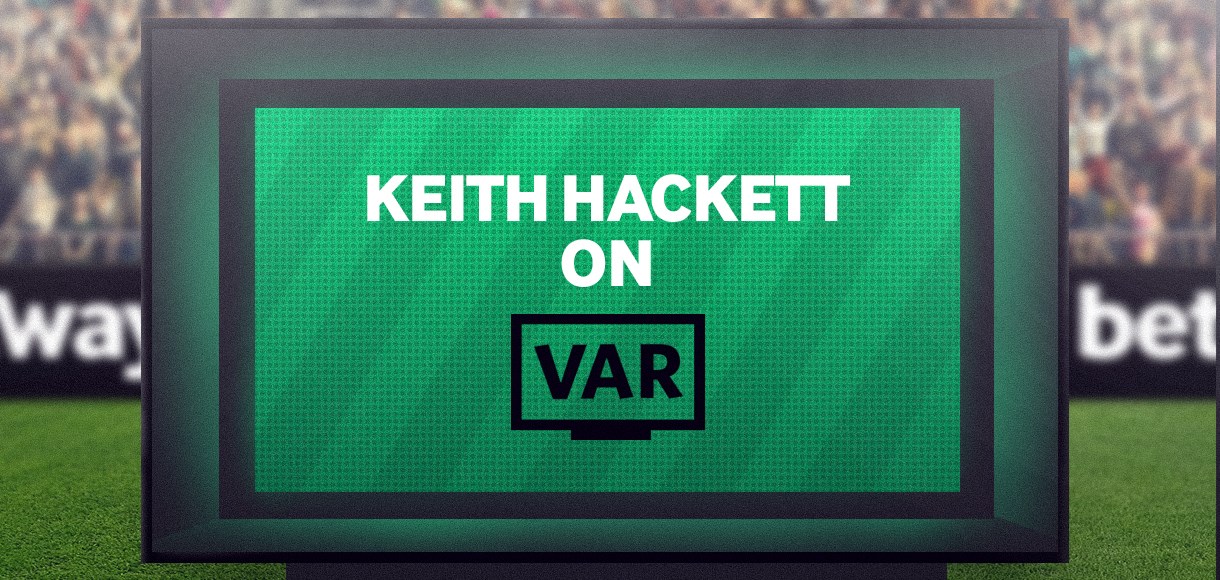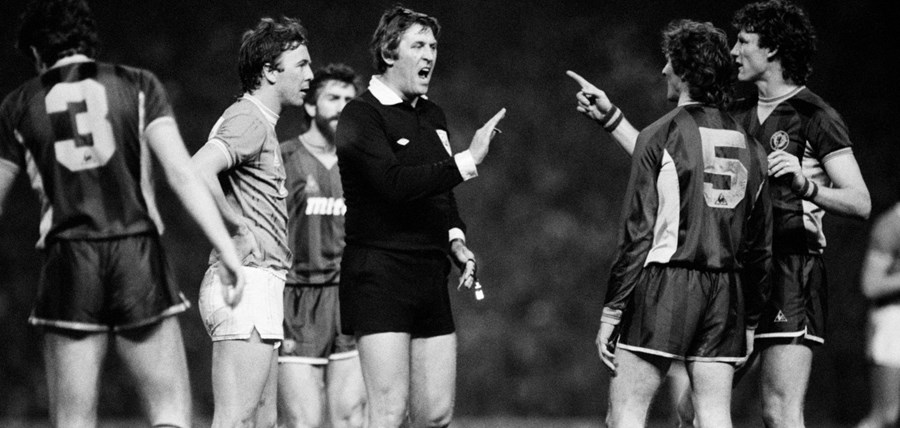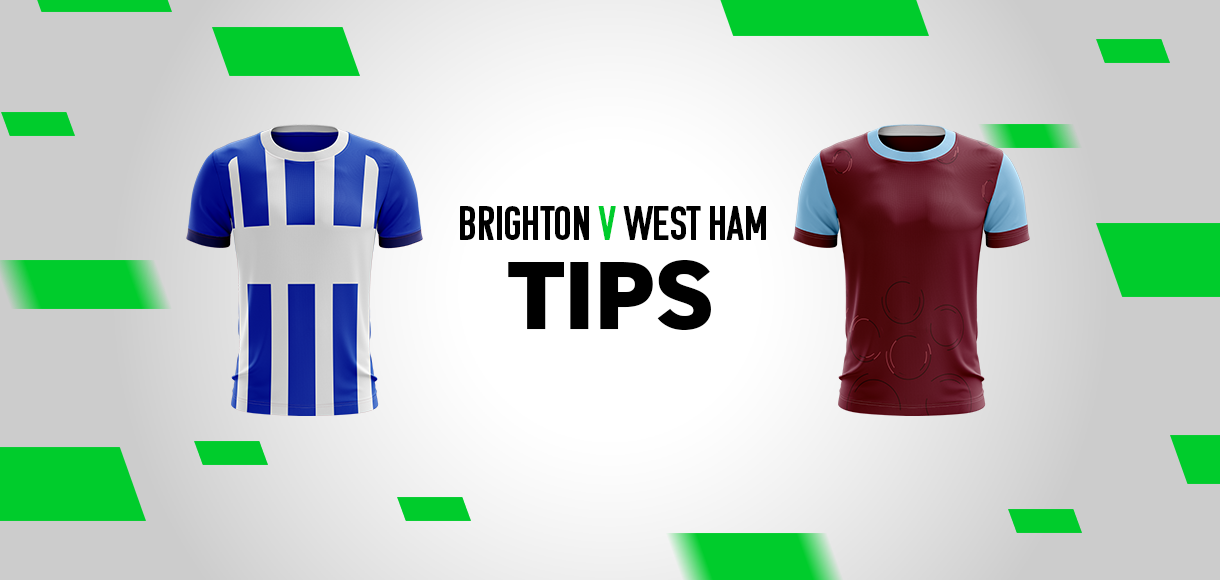Keith Hackett on why VAR will improve in the Premier League

The former chief of Premier League referees reveals that he is keen on the use of technology, but that it requires some tweaking.
"I used to say to my referees, I want you to go out and just officiate the game in front of you. I don't want any surprises."
Keith Hackett prides himself on being a hard taskmaster. It's how he produced "a group of world-class referees" that included Graham Poll, Howard Webb and Mark Clattenburg during his time as Head of the PGMOL (the body responsible for match officials in English football) in the early 2000s.
But even he must accept that it will be harder for current chief Mike Riley to issue the class of 2019/20 with the same instructions.
The introduction of VAR to the Premier League adds another layer of complexity to what is already a brutally difficult job.
Referees will be required to regularly halt the game to the frustrations of players and supporters, and occasionally run to the side of the pitch to review incidents on a monitor, many of which will be subjective.
The technology not only increases a referee's responsibilities during a match, but also exposes some of the questionable laws that they must adhere to.
"Mark my words, we are going to get surprise decisions," says Hackett.
"Take the handball law. What they're saying is that a goal can't be scored by the hand of an attacking player. People are going to say it’s accidental, but it’s no goal.
"It's so important that Mike Riley gets his referees together and he agrees what’s going to be punished and what’s not. These decisions are already so difficult to make."
Despite this, Hackett has felt for some time that the use of technology is the next logical step.
"I think it's overdue," he says. "It could have been in for at least a year now.
"It gives the referees a second chance to put right a wrong, and I think that has to be the priority.
"The boss of the PGMOL said at the end of last season that 82 per cent of big decisions were correct – that's like saying one in five are wrong. VAR will improve the accuracy of decision-making."
Outrage at the technology has intensified since it's huge impact on the 2018 World Cup, but the officials themselves are comfortable with it.
Though he is pleased that more correct decisions will be made, Hackett – who is already suspicious about the current standard of officiating – is concerned that video replays do not detract from the on-field referee's command of a game.
"Law 5 states that the referee is the sole decision-maker," Hackett says. "Though I haven't heard of a referee who is unhappy about VAR, they should still want to be involved.
"I think Mike Riley can be too protective of some referees who let him down.
"We probably have four referees that hold their position on performance: Michael Oliver, Anthony Taylor, Chris Kavanagh and Mike Dean.
"I want to see an improvement from some, like Simon Hooper and Craig Pawson. I think sometimes it's laziness. Sports science needs to be used to measure the accuracy of the fitness of our referees.
"I don't want VAR covering for weak refereeing. We've got to have referees at the highest level operating with confidence and making the big calls."

Does Hackett think he will get his wish?
"Well, I will say that I'm really pleased with the noises that I'm hearing," he says. "In terms of how and when VAR will intervene.
"I believe it's Mike Riley's intention to raise the bar up, reduce the amount of interventions and speed up the process.
"We only want VAR to come in on serious errors, and we want a quick, correct decision. All the sounds are positive towards improving the standard of officiating."
But there are people who would remain dissatisfied even if VAR worked flawlessly.
Match-going supporters are frustrated by the delays to the game every time that a decision is checked, while plenty would appreciate more transparency in the process.
"That's a massive downside, in my opinion," says Hackett, "I would like to see the spectators involved.
"I watch cricket and rugby. I see how they make the review as part of the entertainment. It reduces the time pressure and proves to the spectators how difficult some of these decisions are.
"The reality of the time wasted is actually against perception. More time is lost in goal kicks than VAR intervention over 90 minutes. But the people in the stadium need to be more informed."
Hackett has understood that clarity is a vital part of a referee's job ever since he received criticism for sending off West Ham’s Tony Gale in the 1991 FA Cup semi-final at Villa Park.
Gale was the last defender when he took down Nottingham Forest's Gary Crosby, an offence that would have only earned him a talking to a few weeks earlier, but was now worthy off a sending off following a recent law change. Hackett is still forced to defend the decision to this day.
In his time as PGMOL chief, he introduced annual meetings between officials and managers, before writing a series of You Are The Ref books that were often serialised in newspaper cartoons and designed to educate readers about obscure rules.
Now, he spends time on Twitter fielding questions and delivering his own forthright assessments of referees' performances.
"I hope that is the case," he says, when asked whether engaging with Twitter users helps the general public to understand the complexities of refereeing.
"I believe in educating the stakeholders of the game. It is one of the responsibilities of all referees at all levels, both in terms of interpretation and application of laws.
"For example, if the ball hits the referee this season, the ball is dead. You can imagine that will catch a few people by surprise.
"When you discuss something like that on social media, at least the fans will have a chance of understanding."
Perhaps greater transparency is the key to convincing supporters that VAR can work in the Premier League.
What is certain is that by channelling their former boss' frank and enthusiastic manner, the current lawmakers can't go far wrong.
Visit Betway's football betting page.




































